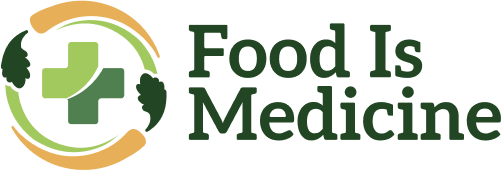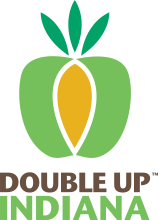Centralized Resources
Balances state-level centralization under a dedicated position with direct engagement and needs assessment conducted within communities to ensure unique local needs are understood.
Partnerships
Integrates with health care systems has augmented uptake of DNPA’s Food Is Medicine (FIM) programs, but reaching individuals in rural areas with limited access to health care facilities remains a significant challenge.
Blended Funding
Has creatively woven together varied federal and private funding sources to extend impact beyond direct food purchase limitations that may apply to individual grants.
Bright Spot Profile
The Indiana Department of Health (IDOH) Division of Nutrition and Physical Activity (DNPA) engages in Food Is Medicine (FIM) efforts through their produce prescription (Produce Rx) programs and Supplemental Nutrition Assistance Program (SNAP) matching program, known as Double Up Indiana.
IDOH was included in the Bright Spots series to provide representation of public health systems advancing FIM interventions, to teach other FIM implementers how they can have a positive impact on their local public health infrastructures, and to highlight how implementers can combine funding streams strategically.
Program Pillars
DNPA helps establish and support FIM programs that can prevent and manage diet-related chronic diseases. IDOH created a dedicated FIM director position using SNAP-Education (SNAP-Ed) resources prompted by substantial interest from community partners in leadership and structure at the state level to run programs uniformly.
The two pillars of DNPA’s FIM programs are Produce Rx and Double Up Indiana. To assess the effectiveness of its FIM programs, DNPA has developed a surveillance system that monitors and detects changes in relevant nutrition data of FIM program implementation and participation. To help ensure the long-lasting impact of FIM programs, DNPA is working on policy considerations for future implementation that will improve the nutrition and physical health of residents in Indiana.
Blended Funding Sources
COVID-19 Funding
DNPA used federal COVID-19 funds and leveraged connections with food systems and public health nutrition organizations — local health departments, health care systems, foundations, community-based organizations, and coalitions — to launch its FIM programs, bringing much-needed structure for FIM at the state level.
In 2021, IDOH received a non-competitive COVID-19 Health Disparities grant from the Centers for Disease Control and Prevention (CDC), a portion of which went to DNPA to support 13 Produce Rx pilots and to launch the statewide expansion of Double Up Indiana, bringing it to over 50 sites across Indiana.
IDOH received approval for an extension of this funding through spring 2026 to continue to build out Double Up Indiana infrastructure and support 9 of the 13 Produce Rx grantees to continue programming or start new cohorts.
Local Infrastructure Investment
Additionally, IDOH is leading Health First Indiana (HFI), a historic state investment in Indiana’s local public health programming passed by state legislation and launched in January 2024. HFI allocates over the next 2 years more than $200 million to support local health departments.
DNPA provides guidance and support around the HFI chronic disease prevention core service with the goal of helping local health departments invest these funds in FIM interventions as part of their obesity prevention and chronic disease reduction core service strategy.
In addition, DNPA is funded by both competitive and allocation-based federal grants, such as SNAP-Ed, Title V Maternal and Child Health Services Block Grant, U.S. Department of Agriculture Farm to School cycle grants, and more. Unfortunately, most federal funding does not permit many direct food purchases. Therefore, DNPA has had to strategically weave funding sources together to pursue a robust approach to FIM programming. This includes the pursuit of funding support from private partnerships.
Centralization at the State Level
Most funding DNPA receives is centralized at the state level and distributed to local partners through competitive grant-making and vendor contract awards. DNPA will continue to leverage federal funding to support FIM and manage distribution at the state level to help ease the administrative burden for many partnering organizations.
DNPA supplements 3 Gus Schumacher Nutrition Incentive Programs (GusNIP) – Produce Prescription-supported programs in Fort Wayne, Marion County, and Northwest Indiana. Additionally, funding from CDC’s Racial and Ethnic Approaches to Community Health program provides capacity building support for Double Up and Produce Rx programs in Marion County.
Evaluation and Impact
To measure the impact of Double Up Indiana, DNPA partnered with the St. Joseph Community Health Foundation that operates Double Up Indiana in the Northeast region. This organization provides DNPA with bi-annual qualitative reporting and annual quantitative reporting. To measure the impact of its Produce Rx program, DNPA contracts with grantees, including evaluation guidelines and providing participants with links to optional pre- and post-program surveys, which collect participant-level data through a secured Research Electronic Data Capture platform.
DNPA collects health outcomes data from Produce Rx grantees on a voluntary basis, aiming for simplicity given the diversity of organization types. For grantees that are community-based organizations (CBOs) partnering with health care partners, DNPA relies on those organizations’ own processes for data sharing with the health care systems they are working with.
Additionally, grantees are asked to provide DNPA with quarterly implementation reports on progress, successes, challenges, and updates. DNPA is working to improve data protocols and provide guidance and technical assistance where necessary to improve data collection compliance and enable improved program evaluation.
Diversified Partnerships
DNPA partners with universities, Indiana’s land-grant university (Purdue Extension), local health departments, local food networks/councils, CBOs, health care systems (e.g., Federally Qualified Health Centers), and foundations within the Midwest to support and help accelerate the implementation of its FIM projects, with an emphasis on Policy, System, and Environment strategies.
To support these strategies, the SNAP-Ed funded Purdue Extension Nutrition Education Program staffs approximately 40 community wellness coordinators based throughout Indiana. The coordinators live and work within the communities they serve and have a thorough understanding of unique local needs and characteristics of Indiana towns, cities, and counties. Many have conducted community needs assessments to determine initiatives that would benefit their communities the most.
DNPA leverages its partnership with coordinators to learn more about the communities they are trying to impact. DNPA aims to develop more private partnerships in the future because these partnerships are an important part of securing funding to help build infrastructure and cover incentive dollars, including required matches of funding for federal grants (i.e., GusNIP).
Promoting Health for All with Data
IDOH’s Office of Data Analytics works with DNPA to develop methodologies to identify high-priority communities. Specifically, the Office of Data Analytics uses each community’s Social Vulnerability Index to identify those who need FIM programs the most but have historically been under-resourced.
When allocating resources, DNPA prioritizes communities with the highest Social Vulnerability Index and considers additional factors, such as communities of racial and ethnic minorities, rural and urban communities, SNAP households, individuals with low incomes, and Medicaid/Medicare beneficiaries.
Implementation Challenges
Community Acceptance and Uptake
One of the greatest challenges that DNPA has experienced is community-level barriers to FIM project uptake. Some communities have decided not to implement the FIM models proposed by DNPA because the models did not meet the communities’ needs. During subsequent information sessions, some community members shared that they did not want DNPA to dictate the foods they were allowed to purchase with their incentive dollars, specifically around SNAP-matching programming.
Providing Incentives in Rural Areas
Similarly, DNPA has found it increasingly difficult to incentivize community members to participate in its FIM programs, such as Produce Rx, due to capacity (i.e., personnel) limitations in the health care system and minimal health care access in rural areas across the state.
Incentivizing FIM program participants is especially important, but also challenging because Indiana’s many rural communities may not have any health care facilities located nearby in which to embed traditional evidence-based FIM programs.
DNPA is exploring various policy innovation strategies that support the provision of healthy food to individuals in remote locations.
Guidance for Implementers
Before starting a new FIM project, specifically Produce Rx programs, DNPA recommends that implementers and partners consider how to integrate community nutrition strategies into health care delivery, including assessing their readiness.
DNPA encourages organizations who are interested in implementing their own FIM programs to creatively and strategically leverage non-traditional funding streams that, at first glance, may not seem to be supportive of FIM work, as DNPA did with the COVID-19 Health Disparities grant.
Organizations that are already receiving federal funding, such as SNAP-Ed, could ask their project officers whether their FIM programs can receive funding from non-traditional sources by creating proposals that explain how their FIM programs would improve health outcomes in their priority populations.
Next Steps
Enhance Operational Structures
DNPA applied for a large-scale GusNIP grant to expand and enhance its work for its statewide SNAP-matching program, Double Up Indiana, and will transition as the central administrative agency for program support — providing funding, evaluation and technical assistance to its partners.
Expand Collaboration and Access
DNPA will continue to collaborate with organizations across the state to implement and increase access and utilization of Double Up Indiana. In addition, DNPA will revitalize the Indiana Nutrition Incentive Network, initiated in 2019, to provide a space for implementers in 3 priority pillars of FIM in Indiana: Double Up Indiana, Produce Rx, and Food Equity.
Advance Strategies
DNPA will work on developing strategies to increase access to FIM services across the state, such as:
- Identifying policy considerations to implement impactful and sustainable solutions to support FIM interventions
- Establishing a FIM coalition with diversified experiences and expertise to help guide and boost engagement around FIM
- Continuing to monitor research, best practices, and trends in FIM across the country, learning from peers and adapting or replicating policy strategies to advance Indiana in this space




